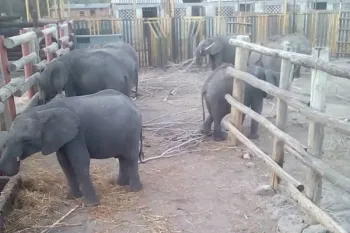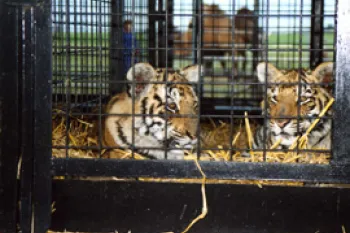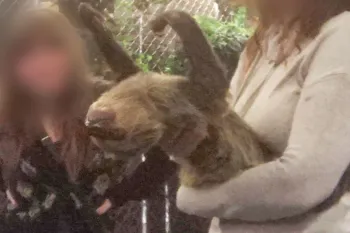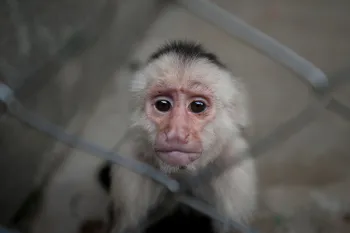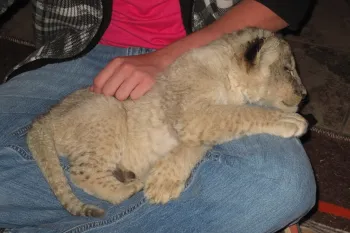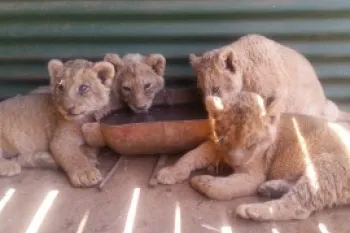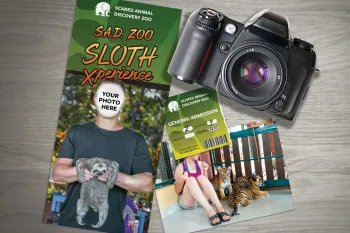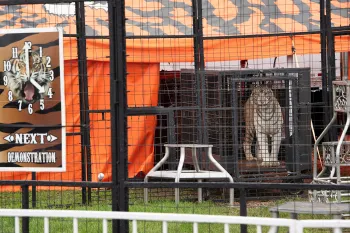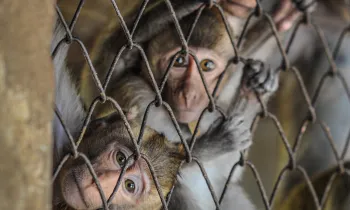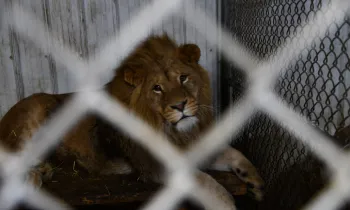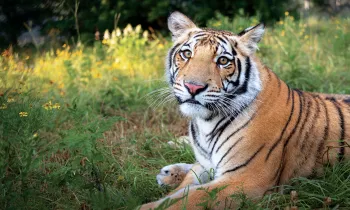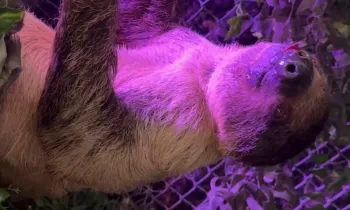
Kathy Milani / Humane World for Animals
Helping captive wildlife
Learn how wild animals suffer in captivity for roadside zoos, tourist selfies, and entertainment. Discover the truth behind animal exploitation and how you can help stop wildlife cruelty.
Did you know?
operate around the world, according to the Association of Zoos and Aquariums
are suffering in captivity in South Africa for cub-petting and other exhibits
on average are imported into the U.S. every year to meet the demand for public encounters
wanderluster/Getty Images
Help protect elephants
In many Shriner-sponsored circuses, elephants still endure lives of chains, cages, and cruel training. Elephants shouldn't suffer for entertainment. Please join us in calling on Shriners International to adopt an animal-free circus policy for all chapters.
Captive Animals' Protection Society/
Help protect wild animals in traveling shows
Traveling wild animal shows transport animals for temporary exhibition at venues such as arenas, fairgrounds and even shopping malls. Download this toolkit to learn how you can help ban wild animal acts in your community.
Take Action
We bring a broad vision and deep expertise. Learn more about our work to help keep wild animals across the globe in the wild.
Start saving lives today
For a limited time, your gift can go three times as far to help animals in need thanks to a group of generous donors. Will you be a hero for animals who desperately need your help?
Meredith Lee/Humane World for Animals
